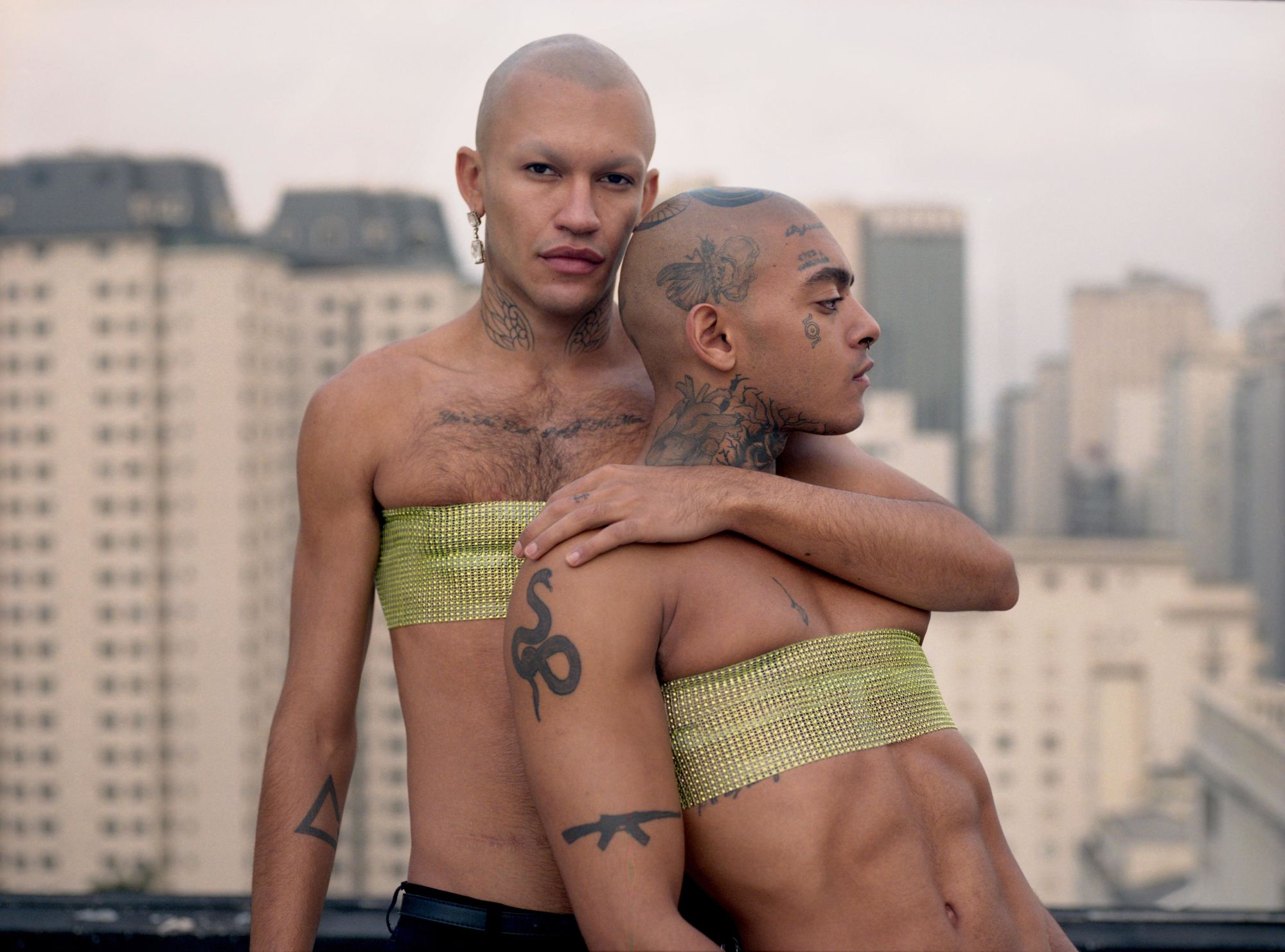Editor’s Note: This story forms part of a collaboration with Dazed Beauty – a new platform dedicated to redefining the language and communication of beauty.
Earlier this year, fashion photographer Florian Joahn had a creative crisis. “There are so many images out there,” he said, “why would I add to that? I am a white male, tall, my narrative just isn’t that interesting.”
He has a point; with nearly 50,000 pictures uploaded every minute on Instagram, it is not easy to be seen in the digital morass. Joahn’s solution was to question his reasons for becoming a photographer. It coincided with a trip to S?o Paulo to document a transgender community for an exhibition called “Y’all better quiet down” (inspired by trans rights activist Sylvia Rivera) with his collaborator, stylist Jean Paul Paula. “I realized that I was giving this group a platform they otherwise wouldn’t have. That is important, not another picture of a pretty girl in a dress.”
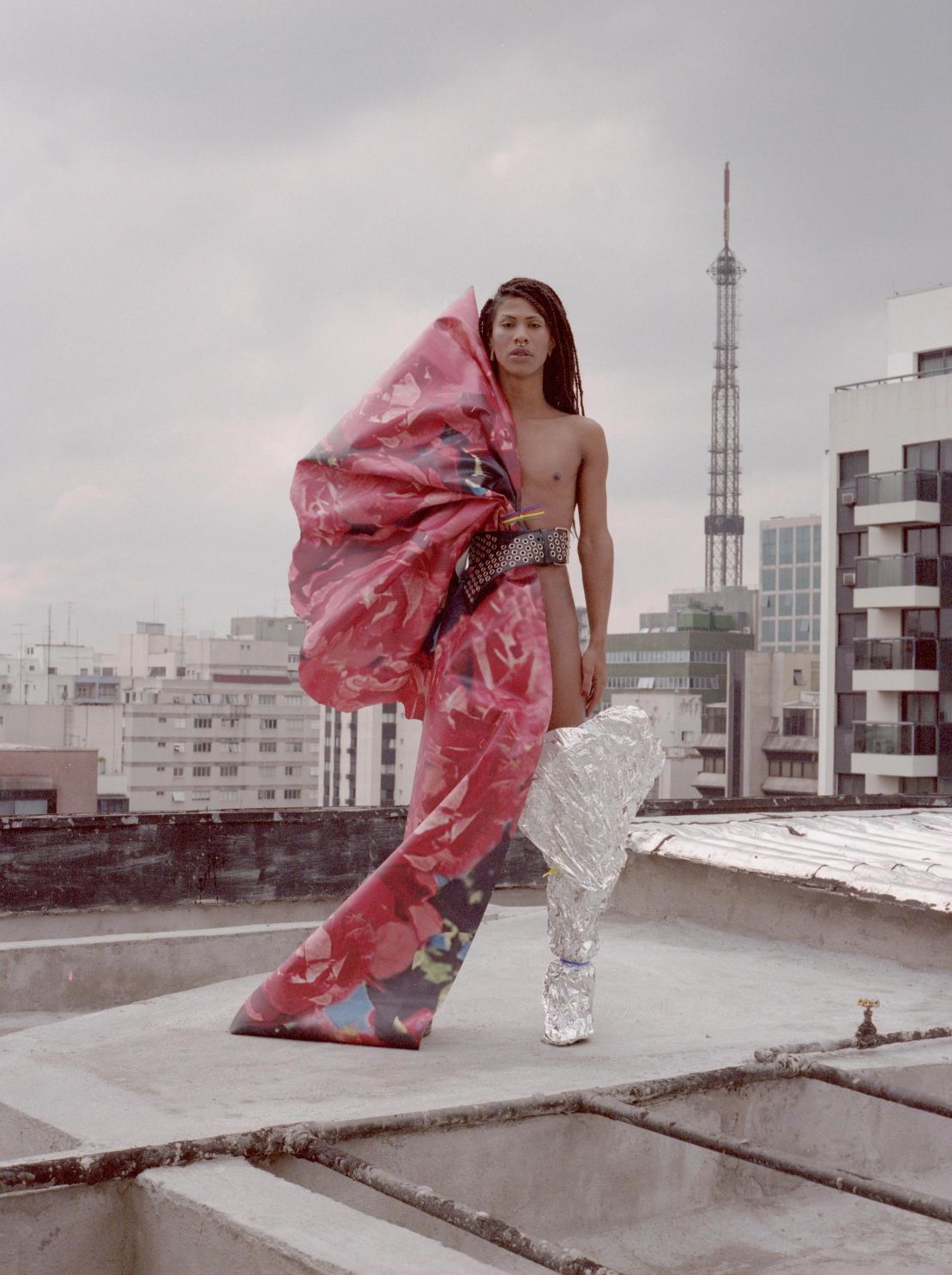
Challenging fashion conventions
A quick look at the London-based photographer’s Instagram feed will tell you there have been few pretty girls in dresses since then. What it does reveal is a fashion photographer with a singular language and a sinewy intellect for challenging stereotypical visions of male identity. “I always start out by asking why would I make this image?” he said. “I need to have a reason.”

Do commercial demands of fashion photography constrain his freedom? “Strangely enough, no, fashion is very open, much more so than documentary.” He cites the uncompromising Peter Lindbergh as a good example of a photographer who has successfully navigated the market forces of the fashion world. “He redefined how women should look, his images are raw, no make-up, I didn’t even know that was fashion photography when I first saw his pictures,” he said.
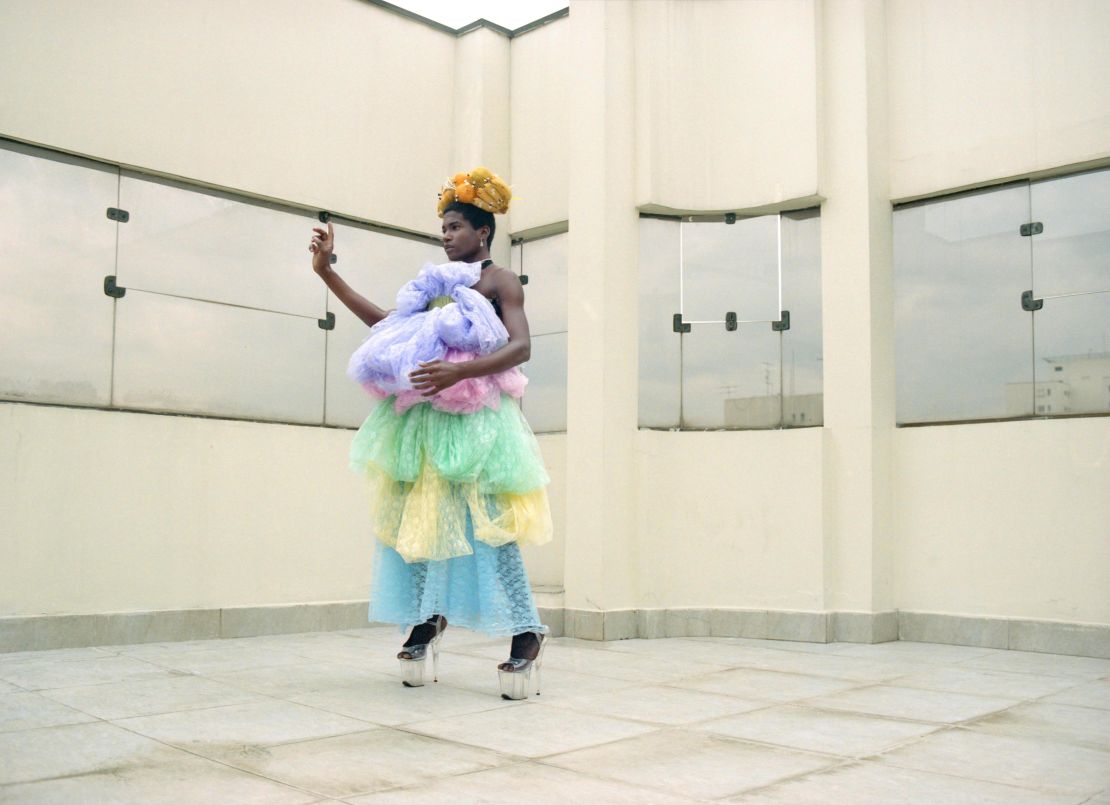
Joahn is engagingly eloquent and refreshingly candid about the paradoxes of the fashion world. Born in 1990 in the stark industrial environs of East Germany, just as socialism was collapsing, Joahn knew he wanted to be in fashion from the age of five. “I loved the beauty and the fantasy of it. Growing up as a gay boy in a very conservative town, I just didn’t fit in.” His introduction to photography was via the unorthodox route of producing fake IDs for his friends. “I realized I could manipulate their faces in Photoshop and enhance their features. It made me realize a photograph is more than just representation, you can create with it.”
Broader visions of male identity
At 18, desperate to escape his sheltered upbringing, he moved to Ghana to teach. There, Joahn discovered the African narrative he had been led to believe in was nothing like reality.

“I came as a volunteer, but I wasn’t smart or aware, how was I going to help a 40-year-old man with his own business? There is this weird white idea about Africa being an underdeveloped place, but it’s just a different way of living. I lost a lot of my judgement.”
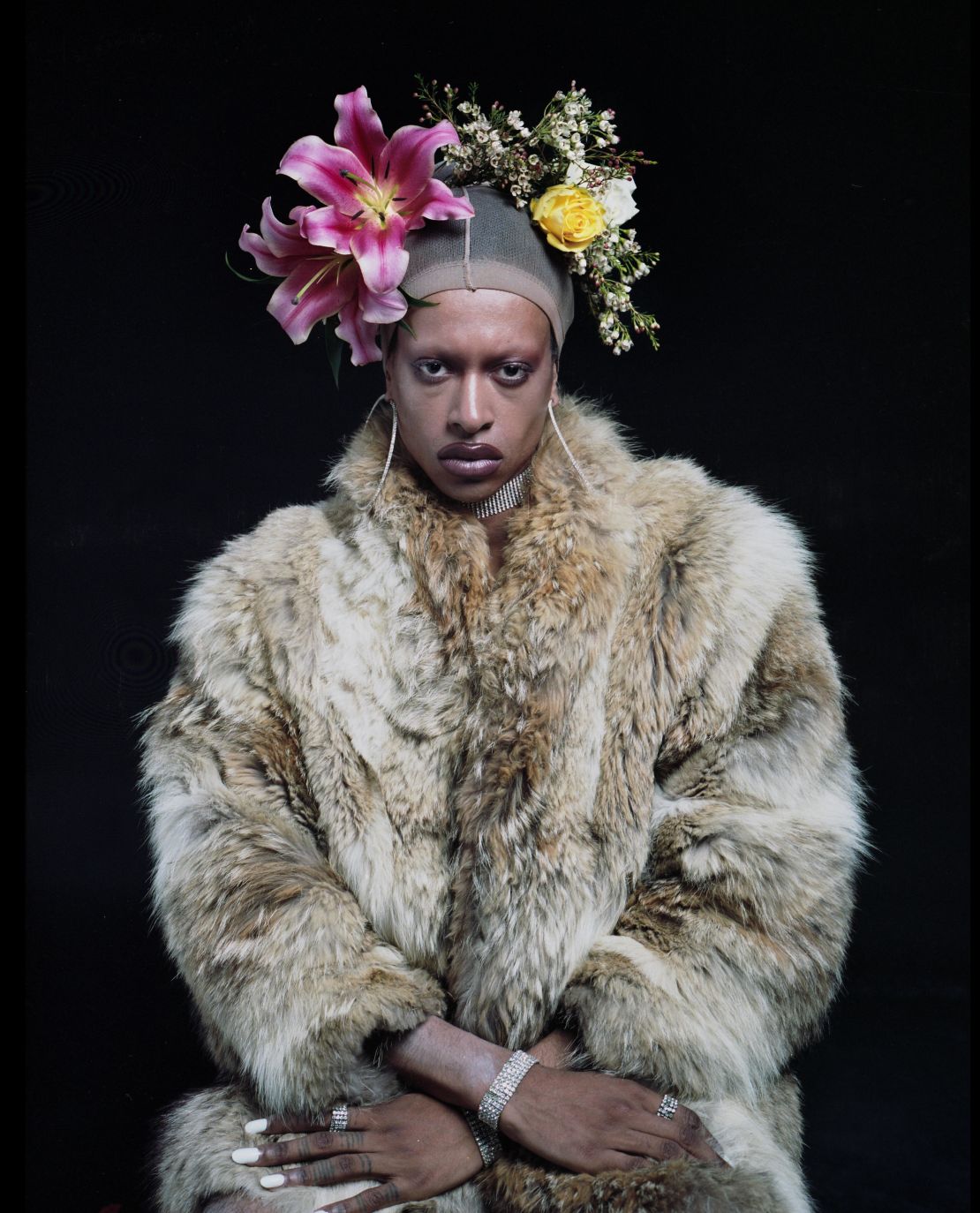
He returned to Europe and studied audiovisual art at the Gerrit Rietveld Academie in Amsterdam. Did he not want to study fashion? “I had this bourgeois mind-set that fashion wasn’t deep enough. It was only when I got accepted onto a master’s program at the St?delschule in Frankfurt that I realized my heart wasn’t in it.” However, his training in the visual arts gave him the courage to push aesthetic boundaries while also retaining a strong social message. “Sure, I’m not afraid of creating tension,” he said.
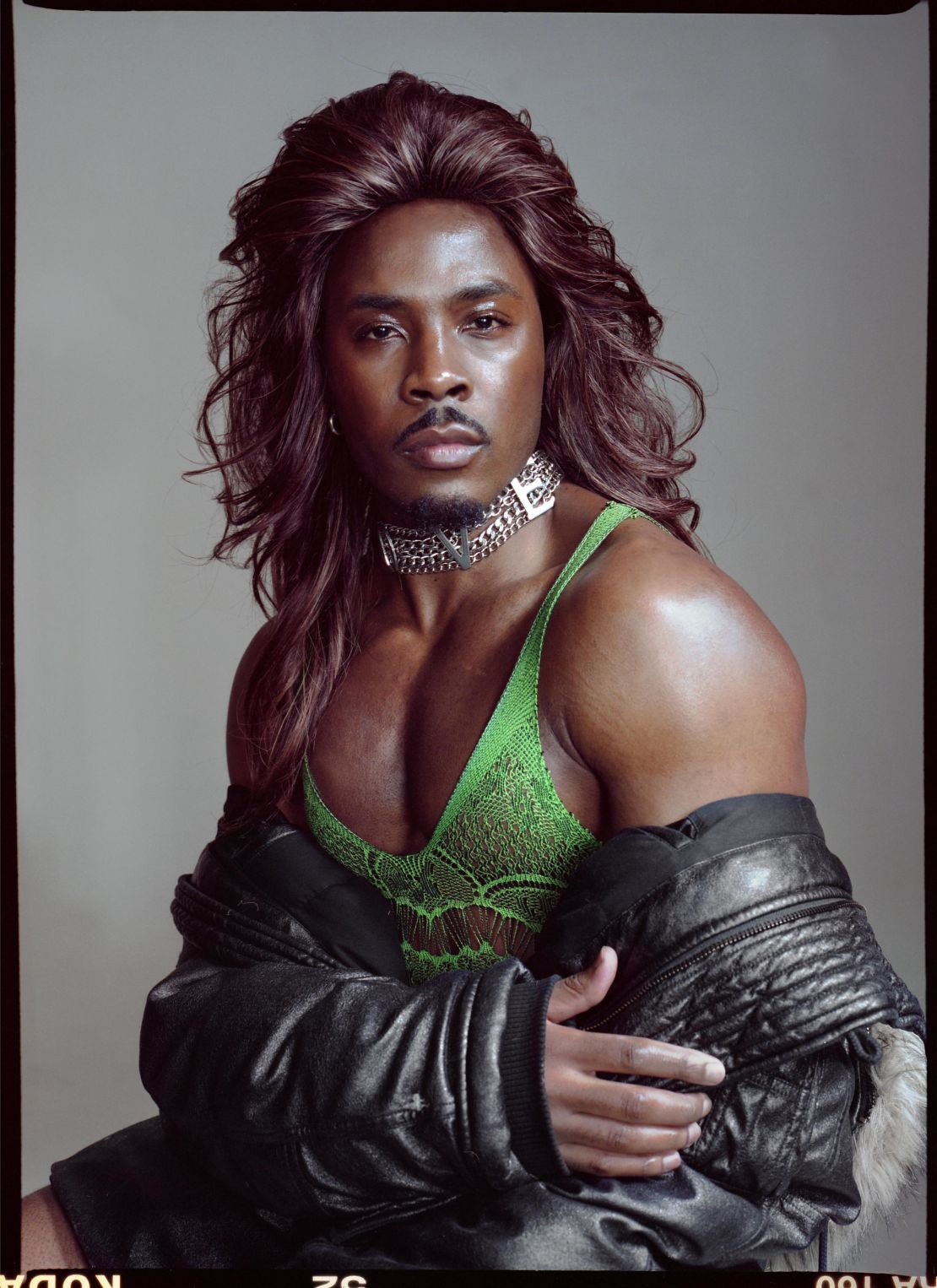
His favorite shoot to date is one he made with the online platform Dazed Beauty depicting Alex, a black model in a Gloria Estefan wig and a tiny green dress stretched tight across his bulging muscles. “He was great,” said Joahn. “Totally unafraid of his feminine side. Most men wouldn’t feel comfortable doing that.”
But he remains frustrated by the lack of diversity in the industry. “Fashion thinks of itself as a pinnacle of inclusivity, but where are the plus size models, the gay people, the people of color?” His dream, he said, is that one day there will be enough depictions of BAME and LGBT people that his photography will become obsolete. What would he do if that happened? “Social work,” he said without missing a beat.
